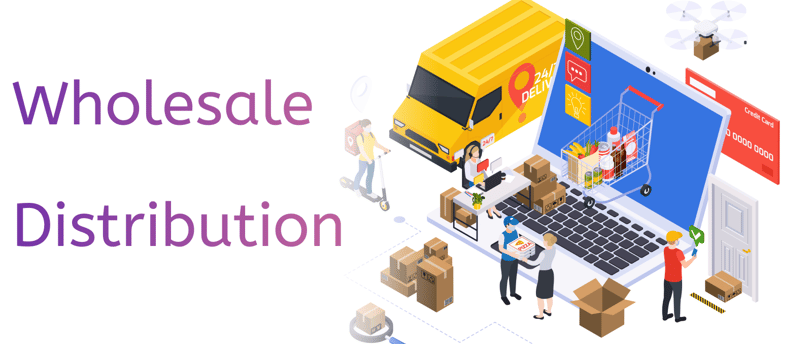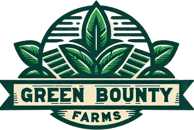Scaling Up Urban Food Security: The Role of Container Farming in Wholesale Distribution
Christopher Hebb
11/1/20245 min read


Introduction to Urban Food Security
Urban food security refers to the access of urban populations to sufficient, safe, and nutritious food that meets their dietary needs and food preferences for an active and healthy life. Currently, cities worldwide face several challenges that jeopardize this critical aspect of urban living. One primary concern is the vulnerability of supply chains that have become increasingly complex and interdependent. Disruptions in these systems, whether due to environmental factors, globalization, or political instability, can lead to severe shortages of fresh produce in urban areas.
Furthermore, cities heavily rely on long-distance transportation for their food supply. This reliance not only leads to increased carbon emissions but also contributes to food spoilage and loss during transit, particularly for perishable items. As urban populations continue to grow, the demand for fresh and nutritious food escalates, exacerbating the challenges already faced by metropolitan areas.
Urbanization itself also dramatically affects food access. Many urban dwellers live in food deserts—areas where fresh food is either too distant or expensive to procure. Consequently, residents often resort to processed and unhealthy food options, which can lead to increased rates of diet-related health issues. This situation highlights the need for establishing resilient local food systems capable of providing fresh produce and sustaining community health.
Innovative solutions, such as container farming, have emerged as promising pathways to enhance urban food security. By leveraging technology and localized production, container farming can help cities reduce their dependency on long supply chains, increase access to nutritious food, and create sustainable solutions to combat food insecurity. As urban centers increasingly seek to address these pressing issues, it becomes imperative to explore such innovative approaches that cater to their unique environments and needs.
Container Farming: A Solution for Urban Agriculture
Container farming is an innovative method of agricultural production that utilizes repurposed shipping containers to cultivate crops in urban settings. This technique leverages controlled environment agriculture (CEA), allowing for precise management of temperature, humidity, light, and nutrients to optimize plant growth. The closed-loop systems found in container farms ensure that resources are utilized efficiently, minimizing waste and environmental impact. This method of farming offers a viable solution to the challenges of urban agriculture, particularly in densely populated areas where land availability is limited.
One of the primary advantages of container farming is its space efficiency. Shipping containers, which typically measure 20 to 40 feet in length, can be stacked and arranged in various urban locations, including rooftops, vacant lots, and even parking lots. This flexibility allows for the utilization of otherwise unused spaces, transforming them into productive agricultural areas. Furthermore, container farms can be equipped with hydroponic or aquaponic systems, enabling the growth of fresh vegetables and herbs without the need for traditional soil-based gardening.
Moreover, the climate-controlled environment of container farms means that they can operate year-round, independent of external weather conditions. This capability not only increases the overall yield of crops but also allows for the cultivation of diverse species that might not otherwise thrive in a specific region's climate. As a result, cities can enjoy a consistent supply of fresh produce, reducing reliance on long-distance food transportation, which often leads to food spoilage and increased carbon emissions.
Incorporating container farms into urban landscapes represents a scalable and resilient strategy for enhancing food security in cities. By promoting the integration of sustainable farming practices within urban settings, container farming can play a pivotal role in meeting the growing demand for fresh, locally-sourced food.
Benefits of Container Farming for Wholesale Distribution
Container farming has emerged as a transformative solution for wholesale distribution of fresh produce, offering a host of advantages that enhance local food systems. One of the most significant benefits is the ability to provide a reliable and accessible source of food for wholesalers. By establishing container farms in urban areas, wholesalers can reduce their reliance on distant suppliers, which are often subject to delays and inconsistencies. This local sourcing not only fortifies food security but also aligns closely with the growing consumer demand for fresh and locally grown produce.
Furthermore, container farming drastically minimizes transportation costs associated with traditional farming methods. As these farms are often set up in close proximity to urban centers, the logistics involved in transporting goods to market become far more efficient. This reduction in transportation not only lowers the carbon footprint associated with food distribution but also allows wholesalers to pass these savings onto consumers, potentially leading to lower prices and increased accessibility of fresh produce.
The shorter supply chains facilitated by container farming have a profound impact on the freshness and nutritional quality of food. Fresh produce harvested the same day it is sold ensures optimal taste and nutrient retention, addressing the growing concerns surrounding food quality. As urban growers employ innovative techniques to expedite the harvesting and distribution process, consumers benefit from superior products that support their health and well-being.
Several successful case studies exemplify the potential of container farming to bolster local food systems. For instance, urban farms in cities such as San Francisco and New York have implemented container systems that not only meet the demand for fresh produce but also engage local communities through educational programs and direct sales to consumers. These initiatives illustrate how container farming has the potential to transform wholesale distribution, making fresh produce more accessible and fostering a sustainable food ecosystem.
The Future of Urban Food Security and Container Farming
The prospect of enhancing urban food security through container farming presents a unique opportunity for cities worldwide. As urban populations continue to swell, traditional agricultural practices struggle to meet the increasing demand for fresh produce. Container farming, employing innovative technologies to maximize yield in limited spaces, serves as a viable solution. These farms utilize hydroponics and aquaponics systems, significantly reducing the need for natural resources such as water and arable land. Such practices not only provide fresh food to urban areas but also open avenues for scalable solutions in food distribution.
Urban planning and policy must adapt to embrace the benefits of container farming. By integrating these systems into city landscapes, planners can facilitate improved access to fresh produce, particularly in food deserts. Regulatory frameworks should support such initiatives, including zoning laws that permit container farming operations, as well as incentives for businesses and communities that participate in urban agriculture. Collaboration among government entities, non-profit organizations, and private sectors is crucial for championing this shift towards sustainable urban food systems.
Technology plays a critical role in advancing container farming practices. Advancements in vertical farming, automated environmental control systems, and data analytics have the potential to optimize growing conditions and increase efficiency, further enhancing the viability of container farms. Community engagement and education are integral to fostering a culture of sustainability and awareness around food security issues. Collaboration among local stakeholders, including schools, businesses, and residents, can contribute to a collective understanding of these practices, ensuring that urban food security initiatives are both well-received and effectively implemented.
Ultimately, achieving urban food security will depend on the commitment of all stakeholders involved. By working together to scale container farming practices, cities can enhance their food systems, promote sustainability, and meet the challenges posed by rapid urbanization. A new era of urban agriculture is within reach, provided we harness innovative technologies and engage communities in meaningful ways.
© 2025. All rights reserved.







